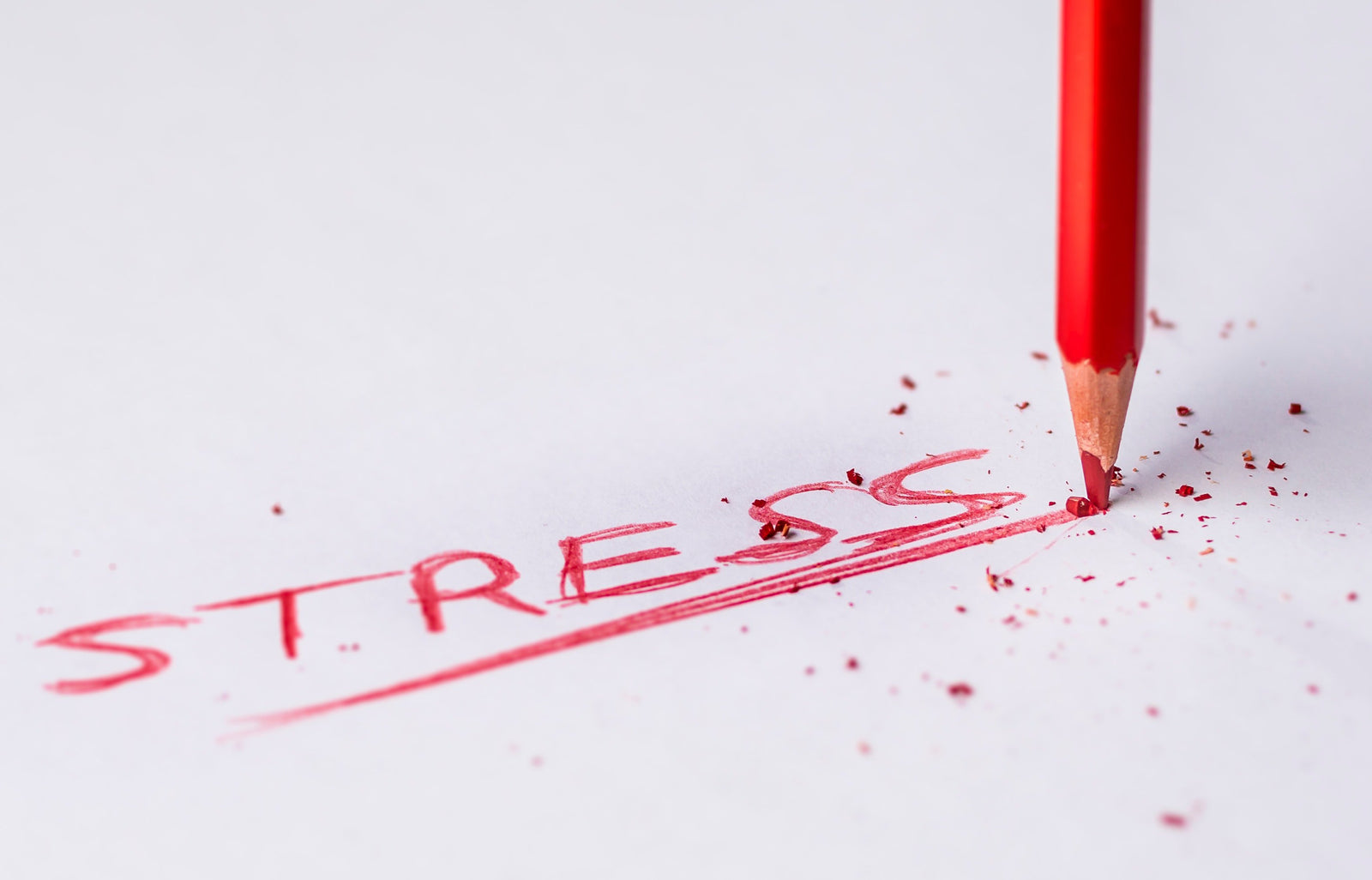Your Cart is Empty
FREE Shipping over $29.99 (no code needed)
FREE Shipping over $29.99 (no code needed)
FREE Shipping over $29.99 (no code needed)

October 22, 2020 4 min read
Life can get stressful... Whether it’s your car breaking down or welcoming the new baby, stress is inevitable. Although we can't avoid unexpected life changes, we can combat our negative responses to them instead of allowing unhealthy habits take over our well being. For some people this means panic attacks, for others this means emotional binge eating or not eating at all. Everyone’s response to stress is different, but for emotional binge eaters, it can be a tough cycle to break.
People emotionally binge eat because they feel as though they are filling up the void of negative feelings with food (I). Food is comforting and sends “feel good” chemicals into the brain, which makes it a great catalyst for encouraging binge eating behavior when stress comes your way.
We've compiled some of the best tips we could find on the internet. If you would like to read the full articles, you can find the links at the bottom of this article.
Self-reflect - Before running to the pantry to grab your bag of chips, pause and self-reflect. Ask yourself if you are actually hungry or if this is your reaction to whatever stressor is triggering you (III).
Remember the root issue - After self-reflection, do not lose sight of the real problem that triggered your stress. Work on coping and dealing with the issue instead of blocking it out with food (III).
Seek Help - Asking for help can be difficult, although you would be surprised how much better you feel after venting to someone. All of your bottled up emotions and thoughts are released, which may be eliminating the cause of your binge eating in the first place. Find someone you trust to talk to about your problems and eating habits, and you will find that overcoming your binge eating and stress will be much easier with support and understanding (IV).
Get Rid of Tempting Foods - If you remove your comfort trigger foods from your kitchen, then you are less likely to go out of your way to overindulge in harmful foods. Purchase only wholesome and nutritional items from the store. For example, purchase celery sticks to eat with peanut butter. If you have a desire to binge eat, it won’t be as detrimental because too much celery never hurt anybody (III)!
Stay Hydrated - Drink 8 glasses of water or more a day! Practice drinking full glasses before every meal and whenever you think you are hungry. This will help you realize if you are actually hungry or if it’s just in your head. You will also be upping your daily water consumption which has so many health benefits in and of itself (III).
Cultivate a Healthy Meal Schedule - Create a meal plan or meal prep and stick to it! If you are on a strict and healthy food regimen every day, there is no room in your schedule to go off track. This does not mean that you should restrict yourself, instead create a meal plan that is nutrient dense and portioned so that you do not go overboard (III).
Daily Exercise - Including exercise into your daily routine or even as a supplement to your emotional eating triggers is a fantastic way to break out of your negative eating cycle. Exercise provides a healthier way to create “feel good” chemicals in your brain by moving your body. This will also contribute to finding a long-lasting resolution and positive outlet for your stress (III).
Meditate - Meditation helps when you feel your stress triggers coming on. Sometimes we don’t always have the option to exercise, but we do have the option to be still and focus on our breathing to help us calm down when feeling overwhelmed. Instead of reaching for the chocolate bar, sit in your headspace and breathe it out for a few minutes. When coming out of your meditation, you will be more at ease and your hunger will not seem as important. This will allow you to be present and in tune with your body, so that you can listen to what it actually needs (IV).
Acknowledging that you have a problem is the first step. Progressively taking control of your emotional eating little by little is how you tackle it next. This plan of action will be unique to your own needs, which is why we provided 8 tips. We know that they may not all work for everyone, but we sure do hope some of them help you figure out what works best for you on your healing journey. Greatness doesn’t happen overnight, but it does happen with acceptance, willpower, and diligence. You can do this!!
(I).https://www.healthline.com/health/emotional-eating#Emotional-hunger-vs.-true-hunger
(II).https://www.helpguide.org/articles/diets/emotional-eating.htm
(III).https://www.healthline.com/nutrition/ways-to-prevent-stress-eating-when-youre-stuck-at-home
(IV).https://www.psycom.net/mental-health-wellbeing/5-ways-to-stop-stress-eating-and-why-you-shouldComments will be approved before showing up.